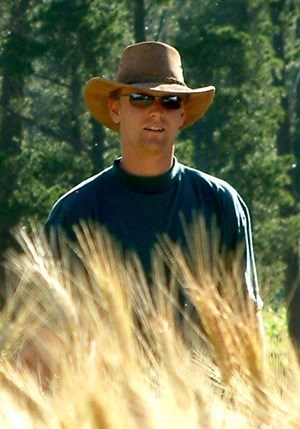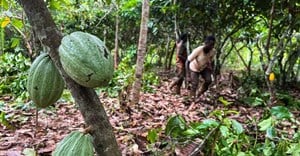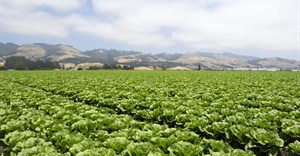
Subscribe & Follow
#InnovationMonth: Smart farming technology to help feed the masses

"This," according to Wolfgang von Loeper, entrepreneur and founder of MySmartFarm, a startup developing a comprehensive consolidation of high-tech agri-services on one cloud computed platform, “should make us realise that humanity faces disaster due to agriculture”.
He also says that “the industry’s propensity to cause biodiversity loss and major changes in global biochemical flows due to its use of phosphates and extraction of atmospheric nitrogen, has harming effects on our planet’s boundaries and its ability to carry the human civilisation”. The intensification and expansion of food production have seen the loss of thousands of species' habitats. According to an article on Grid Arendal, “Despite its crucial role in feeding the world population, agriculture remains the largest driver of genetic erosion, species loss and conversion of natural habitats.” Altogether we have an industry that unduly outstrips planetary resources at a staggering rate.
The kicker, according to von Loeper, is that about 90% of farmers only farm on 2ha of land and it’s the last 10% - mostly the industrial farms – that are the major contributors to the excessive use of resources. Which leads him to pose the question: “It needs to change, but where will the change come from?”
Smart farming
The answer: farmers and how smartly they farm. This is where technology like MySmartFarm comes in. In terms of sustainability, MySmartFarm is a good tool to reduce agriculture's impact, as it allows farmers to effectively monitor and manage their farming operations. As a data management service, it collects and interprets multiple sources of data - including weather forecasts, satellite images, soil moisture monitoring, irrigation plans, etc. – and pulls it into a single online dashboard, delivering it to the farmer in an easy to use format. It facilitates hardware maintenance, accurate fertiliser application, and irrigation while reducing input costs and water usage – to name a few of the many benefits.
The key, according to von Loeper, is simplicity, which includes ease of access, actionable information and easy visualization of the data masses, to help farmers with critical decision making. He says “farmers are skeptical of technology.” They might have tried precision agriculture, sensors, etc. – but could it deliver what they need and was it easy to understand and implement?
Removing the data noise
Essentially, says Von Loeper, MySmartFarm, takes the technology part out of the equation, it removes the data noise and automates most of the processes – MySmartFarm dumbs down the technology for farmers. And in doing so, removes one of the main challenges for technology adoption for farming operations.
While bigger farms make use of tech specialists, smaller farming operations are left to figure it out on their own. What they need is a user-friendly system that will allow them to receive the same access to knowledge as the bigger farms would – and one that won’t cost them another arm and a leg.
Von Loeper’s rough calculation puts the input costs at an additional 1% of a farmer’s operating costs. However, “due to the science behind it, farmers can save 10-20% while increasing yields, making the cost of implementing and using the system negligible."















